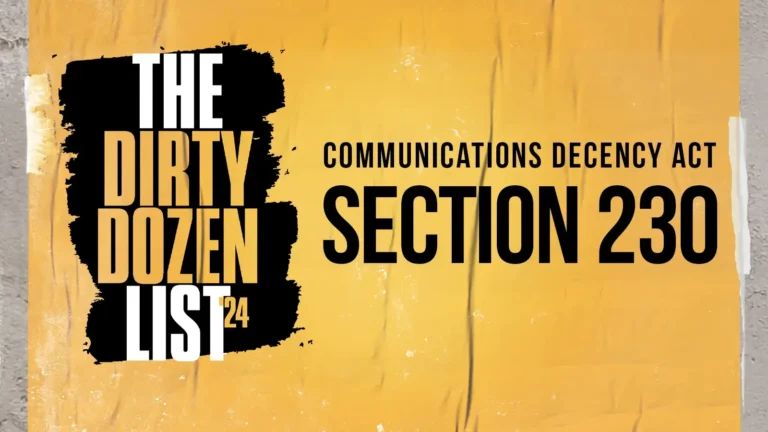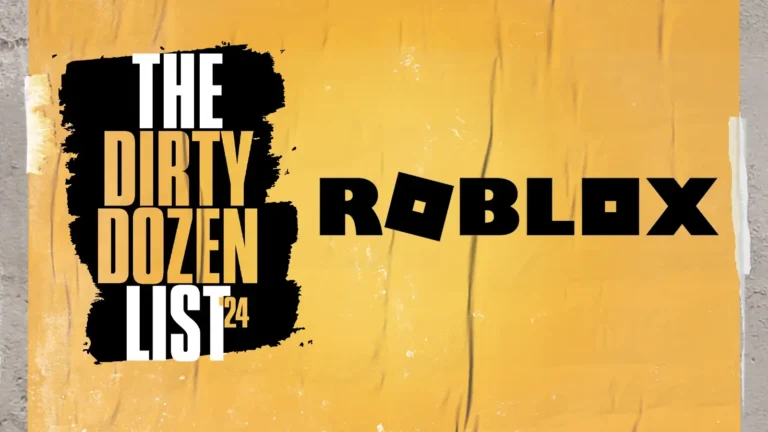Updated 05-24-2024: The Kids Online Safety Act has been introduced in the House, by Reps. Bilirakis (R-FL), Castor (D-FL), Houchin (R-IN), Schrier (D-WA), and Bucshon (R-IN), and has passed out of the House Energy & Commerce Subcommittee on Innovation, Data, and Commerce. The bill now has 69 Senate co-sponsors, and 15 House co-sponsors
A 16-year-old boy dies by suicide after being sexually extorted by a predator on Instagram…
A 14-year-old girl, bombarded with pro-eating disorder content on TikTok, becomes so ill that she has to go on a feeding tube for months…
A 15-year-old girl is raped by a 32-year-old man who groomed her on Snapchat…
These are the kinds of tragedies we hear about weekly. And these are the kinds of tragedies which the Kids Online Safety Act (KOSA) could prevent.
The Kids Online Safety Act is poised to become the first online child protection legislation passed by Congress in 25 years. Recently reintroduced, the bill now boasts a whopping 65 Senate co-sponsors, from across the political spectrum. Both Republicans and Democrats are standing united on this crucial bill to protect our children. This is arguably the most important and hopeful moment that the online child safety movement has seen for decades!
So, what does it all mean? What are the next steps to get KOSA passed? And if passed, how will KOSA protect our kids?
#PassKOSA…heard today we are up to 65 cosponsors @chuckschumer: Please bring the child protection bills up for vote! @NCOSE @GFWCHQ https://t.co/mLm91HewC0
— Eleanor K. Gaetan (@EkGaetan) March 5, 2024
What Does the Kids Online Safety Act (KOSA) Do?
The Kids Online Safety Act holds tech companies accountable to prioritizing child safety. It does this in the following key ways:
- Default to Safety: Currently, even when tech platforms do provide safety settings or tools, they are usually OFF by default—even for children. Since research shows that most people leave devices and apps at their defaulted settings, this approach puts children directly in harm’s way. KOSA would reverse this harmful status quo by requiring that platforms likely to be accessed by children have the highest safety settings ON by default for minor-aged accounts.
- Duty of Care: KOSA establishes a legally actionable “duty of care” for platforms that are likely to be accessed by minors. This means that tech companies must responsibly design their products in a way that protects children, or they could face liability.
- Safeguards and Tools: KOSA requires platforms provide safeguards for children and tools for parents or guardians to protect children and youth from harmful content and predatory behavior.
- Transparency: KOSA requires disclosure of policies and practices that companies use for personal
data and minors’ safety. These public reports are an important way to hold platforms accountable and help pinpoint solutions if they are not reaching standards.
Common Misconceptions About KOSA
Although 86% of voters support what KOSA would accomplish, there has also been a lot of smoke and mirrors from opponents of the bill. In particular, opponents attempt to paint KOSA as a threat to 1) The LGBTQ+ community, and 2) Online Privacy.
Neither are true.
You can read a detailed analysis of why this isn’t true here. But in brief:
- LGBTQ+ Community: The bill was revised twice in consultation with the lGBTQ+ community to address concerns. Following revisions last month, major LGBTQ+ organizations dropped opposition to KOSA.
- Online Privacy: KOSA actually enhances privacy by requiring social media platforms to give minors options to protect their information and opt out of personalized algorithms. It does not include any requirements for moderation, monitoring, or age verification.
Help Push KOSA Through the Next Steps!
The Kids Online Safety Act is poised to head to the Senate floor for a vote. As the majority of Senators support KOSA, it should pass easily. After this, it will head to the House!
Please TAKE ACTION NOW, asking your House representatives to support KOSA!





